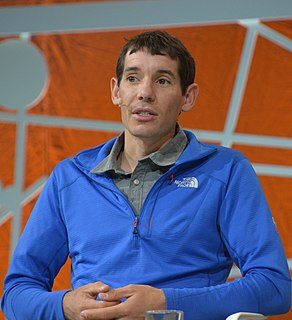A Quote by Andrew Weil
True, nuts are high in fat, but most of them contain monounsaturated fat that is good for the heart. In fact, eaten in moderation, nuts can lower your risk of heart disease and heart attack.
Related Quotes
When I heard that heart disease kills more women than all cancers combined - when I heard that, I knew. The other thing that's very important is that heart disease...is preventable. There are some specific lifestyle changes that women can make: losing weight, not smoking, exercising, eating healthy foods. Knowing the risk factors: high blood pressure, high cholesterol, diabetes, [being] overweight. And if you have heart disease in your family, you should see your doctor. Because this disease is preventable.
Scientists are telling us that 350 parts per million [of carbon] in the atmosphere is the upper limit. We're at 387 parts per million now, and we're up in that zone where the risk of going past irrevocable tipping points is elevated. It's no different than going to a doctor and learning your cholesterol is too high, and you're at risk for a heart attack. You have to work to lower your cholesterol and hope to get there before the heart attack comes.
All red meat contains saturated fat. There is no such thing as truly lean meat. Trimming away the edge ring of fat around a steak really does not lower the fat content significantly. People who have red meat (trimmed or untrimmed) as a regular feature of their diets suffer in far greater numbers from heart attacks and strokes.
Fat loss is an all-out war. Give it 28 days - only 28 days. Attack it with all you have. It's not a lifestyle choice; it's a battle. Lose fat and then get back into moderation. There's another one for you: moderation. Revelation says it best: 'You are lukewarm and I shall spit you out.' Moderation is for sissies.


































